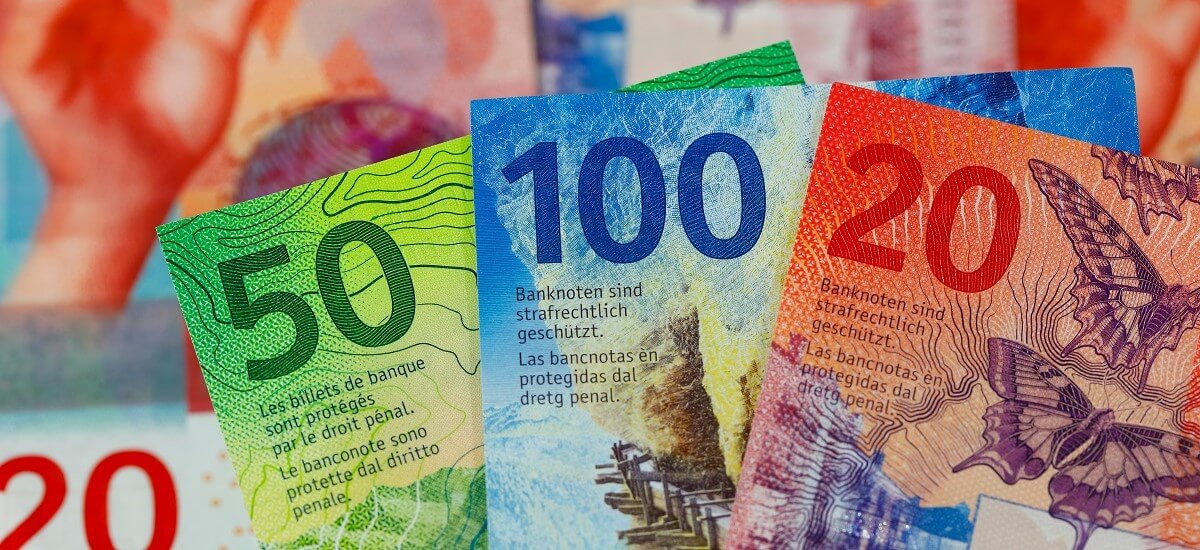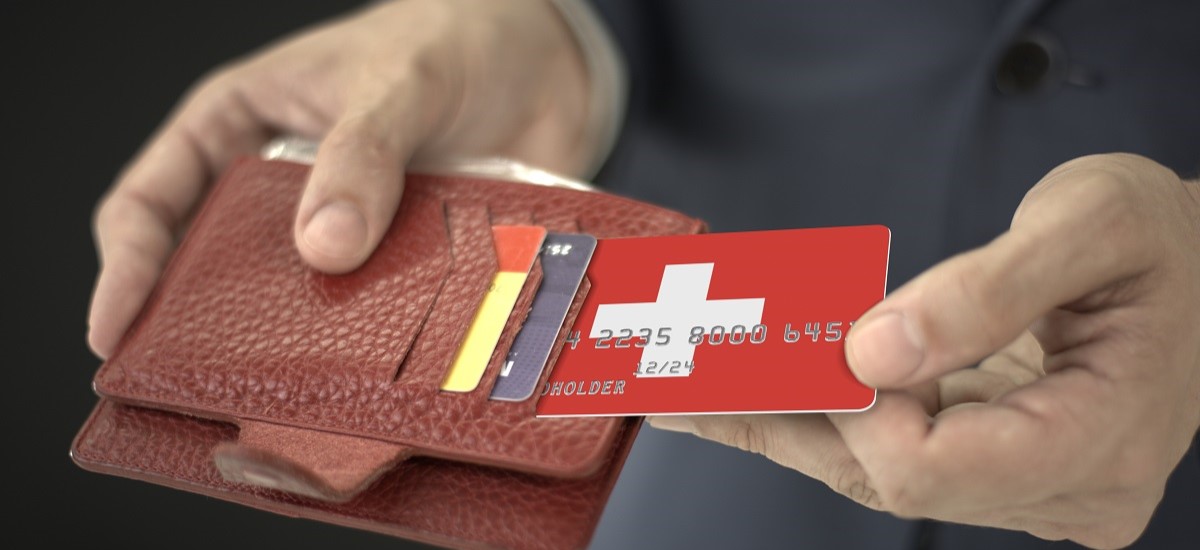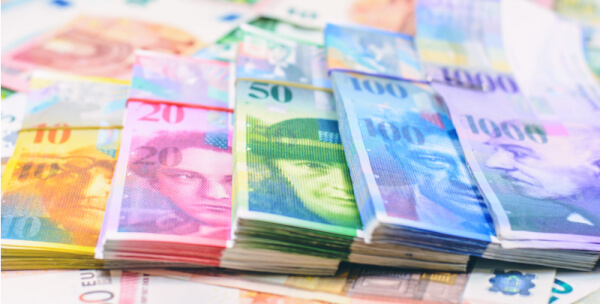Travel to Switzerland from the UK: Must-know travel advice
Planning a trip to Switzerland from the UK? Get advice on visas, safety, managing your money, and what to expect with this comprehensive travel guide.

If you plan on going to Switzerland anytime soon, you might be working out a travel budget. Besides determining how much you plan on spending, it’s also important to know the differences in the financial habits between the UK and Swiss locals.
Cash is a frequently used payment method in Switzerland, but debit cards are slightly more popular. Although you’ll be able to exclusively use cards in most big cities, having cash on hand may be necessary in certain situations. In this article we’ll explore which is more convenient - cash or card in Switzerland?
We’ll also show you a cost-effective way to handle your spending in Switzerland. For international purchases, whether online or in person, you can rely on the Wise card. You can even withdraw cash like a Swiss local at the mid-market exchange rate for low fees*.
In past years, the percentage of cash payments in Switzerland has dropped to below 30%. Cash has since been overtaken by debit cards, which have a share of around 40%, while credit cards and mobile wallets are less popular than you might think. Even though it may seem like cash is becoming a thing of the past when looking at the statistics, that’s not exactly the case.
According to some surveys, around 60% of Swiss citizens would support a cash acceptance obligation. At the same time, over 40% would also like for vendors to be obliged to accept cashless payments. Therefore, Switzerland is unlikely to become a cashless society anytime soon, favouring freedom of payment choice.
At the moment, over 90% of Swiss companies and businesses accept cash.2
Tipping is not mandatory in Switzerland, since a service fee is always included in restaurant or café prices. Still, people often leave a small tip for good service.
There’s no set tip percentage and many people simply round up the bill. If your bill was bigger and you were really happy with your server, you could leave a larger tip. However, even leaving a few coins is perfectly acceptable and not considered rude.
It’s best to leave cash tips, since it might not be possible for servers to accept tips with card payments.

We’ve listed some situations where you’ll be paying for things in Switzerland. Here’s whether you’ll be able to pay by card, in cash or both:
| Payment for… | Card 💳 | Cash 👛 |
|---|---|---|
| 🚕 Taxis4 | Yes | Yes |
| 🏪 Convenience stores | Usually | Yes |
| ☕ Coffee shops | Usually | Yes |
| 🚌 Public transport5 | Yes | Yes |
| 🍽️ Restaurants | Usually | Yes |
| ⛷️ Ski passes6 | Yes | Yes |
There are around 7,000 ATMs in Switzerland and they can be found in both big cities and small towns.
There’s usually a fee of 5-10 CHF per transaction for all foreign cards. In order to avoid bad rates and higher fees, make sure you always go to a registered Swiss bank to withdraw money.
When it comes to withdrawal limits, they’re fairly high at up to 5,000 CHF per day. ATMs dispense Swiss francs and sometimes euros, but the exchange rate is usually bad.
It’s always recommended to choose to withdraw in the local currency without a currency conversion. This will mean you get a better rate, as the conversion will be done by your bank or card provider instead of the ATM provider.
Check out the latest GBP to CHF conversion rates below:
Yes, your UK debit card will be accepted in Switzerland, both for paying and withdrawing cash. However, your bank might charge you a fee for foreign transactions or withdrawals.
As long as you’re paying at a place that accepts cards, you’ll be able to use your UK-issued credit card in Switzerland. Again, always check with your credit card provider in case they charge a fee for foreign transactions or withdrawals.

Switzerland is known for being very cash-friendly. This is still a very popular payment method among the locals, despite the rise of cards and digital wallets. Although statistics show that debit cards are used more at the moment, cash is a very close second and is accepted everywhere.
Also, cash is necessary if you plan on going off the beaten track. If you’ll be visiting the Swiss countryside or hiking in some remote parts of the country, it might be your only option. And even if cards are accepted there, you’ll need cash for tips.

Debit cards are the number one payment method in Switzerland, so you’ll be able to use them most of the time. Unless you plan on going to remote areas of Switzerland, you’ll be fine with just your card.
They’re also a more convenient option than cash. You won’t have to think about exchanging or withdrawing money or deal with leftover Swiss francs after your trip.
Contactless payments are very common in Switzerland. In fact, 99% of cards in circulation have this feature enabled and 84% of payments at POS are contactless.
The limit for these payments is 80 Swiss francs. If you spend a bigger amount, you’ll have to enter your PIN.
Your Wise card can also be used for contactless payments in Switzerland. If you don’t want to carry cards with you, you can get the Wise virtual card with the same features.
Besides traditional credit and debit cards, other payment methods are also available in Switzerland.
The Swiss use well-known digital wallet options such as Google Wallet, Apple Pay and Samsung Pay. Besides this, there are some local mobile wallet apps as well. They’re used for approximately a third of credit card payments and 13% of debit card transactions.1
TWINT is the most popular Swiss payment app. It has many additional functions, such as taking out insurance policies, paying for parking tickets and sending donations.10 TWINT doesn’t use NFC technology and it instead relies on QR codes.11
For an additional layer of security, you could add your Wise virtual card to your wallet. It has all the benefits of a regular Wise card, but it exists in your phone only. You can freeze your Wise virtual card after every transaction within the app for extra security too.
The popularity of BNPL methods in Switzerland is growing, especially with young tech-savvy customers. Klarna is the most used BNPL company, but there are other local options such as HeidiPay and Swissbilling.

Freedom of payment choice is important to the Swiss, so you probably won’t have many issues relying on either cash or cards here. They’re still fairly loyal to cash, so it’s likely that you’ll be able to use Swiss francs everywhere. However, most businesses in popular tourist areas will also accept cards and other digital forms of payment.
If you had to pick one, cash might be a slightly better option. You can use it wherever you go and it’s great if you want to leave tips.
Want to spend like a local in Switzerland and 150+ countries without worrying about exchange rates and hidden fees? Then the Wise card might be just the option you were looking for.
The Wise card can be used for international payments, from your accommodation costs to daily expenses. It automatically converts your pounds at the mid-market exchange rate for only a small, transparent currency conversion fee*.
By saving on fees, you can spend a little extra on holiday treats like raclette or Swiss chocolate!
You can also use your Wise card to easily withdraw cash from ATMs in Switzerland. Each month, you can make 2 withdrawals of up to 200 GBP for free. After that, there is a charge of 0.5 GBP per withdrawal*.
Please see the Terms of Use for your region or visit Wise fees & pricing for the most up-to-date information on pricing and fees.
Here are some of the most frequent questions about using cash or cards in Switzerland:
Yes, you can use your UK card wherever cards are accepted.
Yes, you can use your Wise card in Zürich, Geneva, and anywhere else in Switzerland to enjoy auto-conversion on all your holiday spending at the mid-market rate for a small, transparent fee*.
Why not also check out the Wise account? There’s no limit on how much you can hold in your Wise account and it can hold over 40+ currencies.
Yes, contactless payments are the norm in Switzerland.
At the moment, debit cards are the number one payment method for the Swiss.
Many shops and businesses in Switzerland take euros, but your change will be given in Swiss francs.13
Switzerland is very cash-friendly and it’s a widely accepted payment option.
The best currency to use in Switzerland is of course, the local currency - the Swiss franc.
Swiss ATMs usually charge fees for foreign credit or debit cards. It’s also worth checking with your card provider in case you’ll also need to pay additional fees for spending abroad.
Please see the Terms of Use for your region or visit Wise fees & pricing for the most up-to-date information on pricing and fees.
Sources used:
Sources last checked on date: 11-Jul-2024
*Please see terms of use and product availability for your region or visit Wise fees and pricing for the most up to date pricing and fee information.
This publication is provided for general information purposes and does not constitute legal, tax or other professional advice from Wise Payments Limited or its subsidiaries and its affiliates, and it is not intended as a substitute for obtaining advice from a financial advisor or any other professional.
We make no representations, warranties or guarantees, whether expressed or implied, that the content in the publication is accurate, complete or up to date.

Planning a trip to Switzerland from the UK? Get advice on visas, safety, managing your money, and what to expect with this comprehensive travel guide.

Switzerland is just a flight away. Learn how to shop tax-free and obtain a VAT refund in Swiss cities like Geneva and Zurich as a tourist.

Read our essential guide to ATMs in Switzerland, including how to find them, fees, exchange rates, withdrawal limits and more.

Check out our in-depth guide on everything you need to know about buying a prepaid Switzerland SIM card, including different providers, pricing, and features.

What’s the best way to buy train tickets in Switzerland? A handy guide including step-by-step instructions and FAQs.

Travelling to Switzerland? Find out everything you need to know about how to spend, and exchange money to Swiss francs. And, if you can use euros.